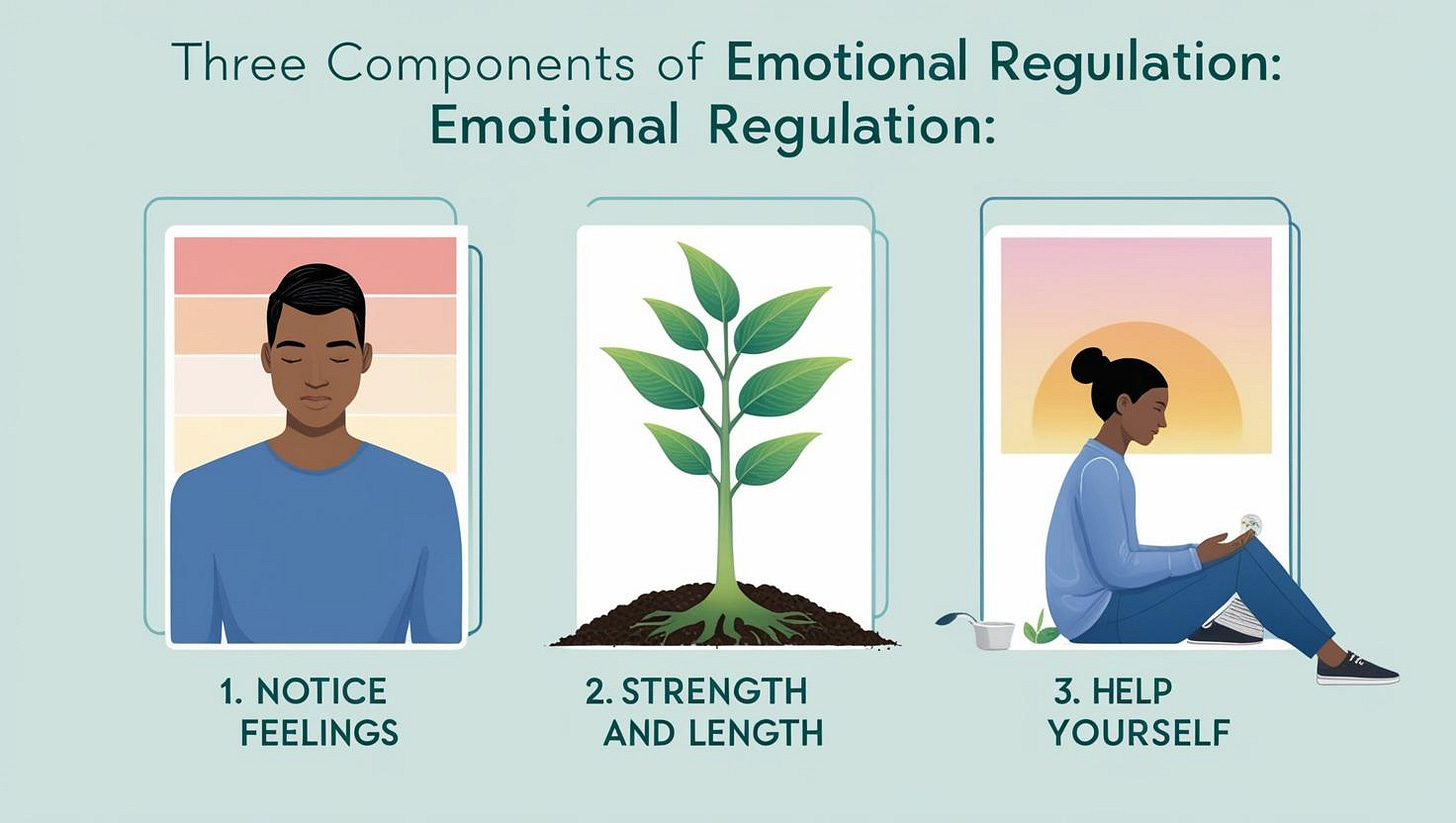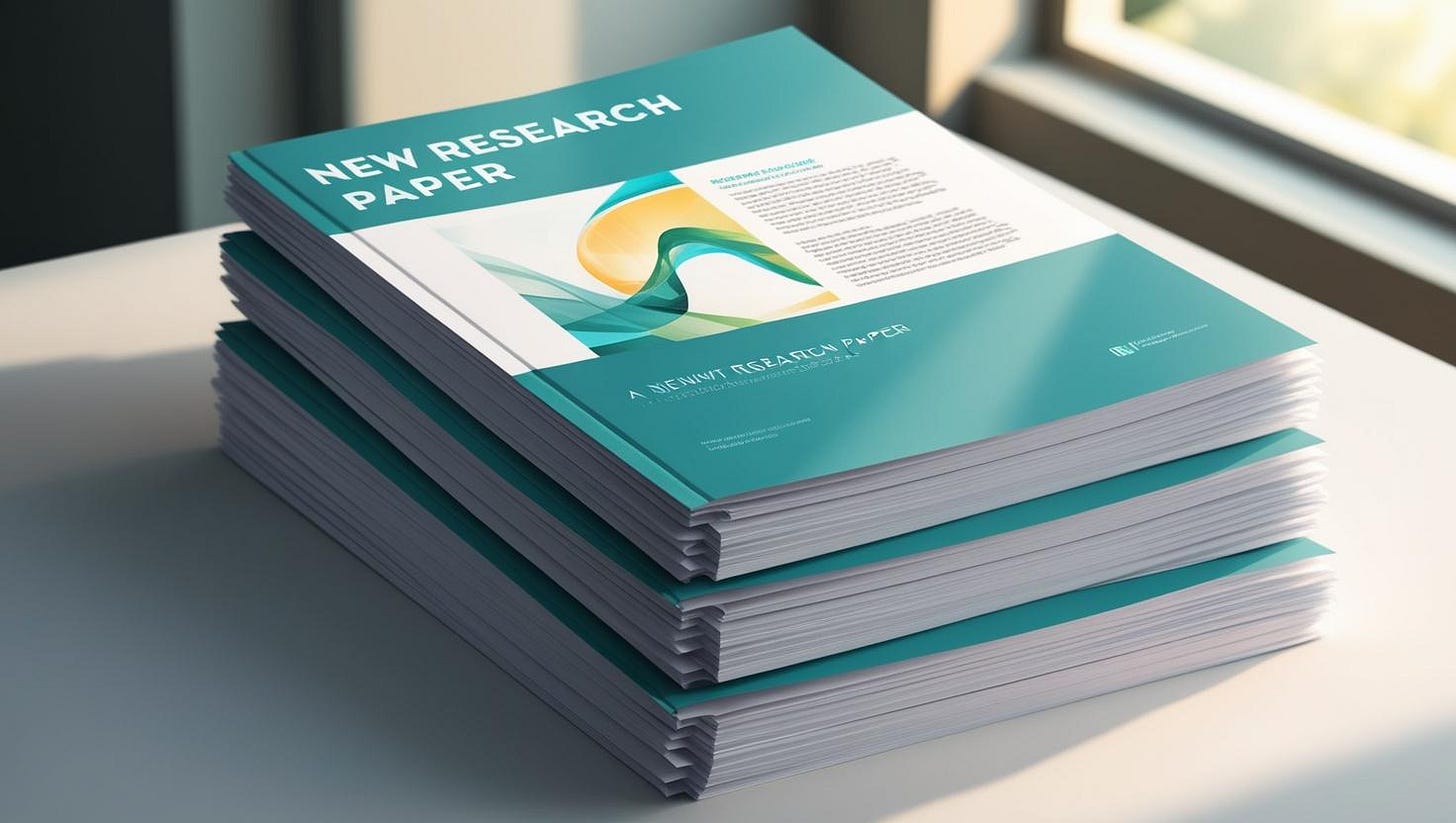What Brand-New Research Tells Us About ADHD and Emotional Regulation
ADHD people can recognize feelings
Understanding Emotional Regulation and Recognition in ADHD
Emotional regulation is the ability to manage emotions in ways that support your well-being and relationships. It involves understanding your feelings, processing them constructively, and responding thoughtfully. A key part of this process is emotion recognition, or identifying emotions in yourself and others.
But let’s take a moment to discuss why emotions matter. Why do we have them, and why are they so important?
Emotions are essential for survival. Fear warns us of danger, anger motivates us to address injustices, and joy strengthens our social bonds. Even sadness has value, signaling a need for support or encouraging reflection.
Emotional regulation is a significant challenge for ADHD people. Because it isn't included in the official diagnostic criteria, how emotional struggles manifest in ADHD remain poorly understood, leaving many without the support they need.
This newsletter explores emotional regulation, what recent research tells us about ADHD and emotions, and how we can better support emotional growth for everyone.
The Three Key Components of Emotional Regulation for ADHD People
1. Emotion Recognition: Noticing and Understanding Feelings
Emotion recognition is the ability to notice and understand emotions.
In Yourself: This includes paying attention to signals like a racing heart or tightness in your chest that indicate stress, excitement, or anger.
In Others: It’s about observing facial expressions, tone of voice, and body language to understand someone else’s feelings.
Why It Matters: Recognizing emotions is the first step to managing them. When you can clearly identify your feelings, it’s easier to choose a response that supports your well-being. For example:
Noticing stress in yourself might prompt you to take a break or seek help.
Recognizing frustration in someone else can help you respond thoughtfully, avoiding misunderstandings or conflict.
2. Emotion Reactivity: How Strongly You Feel Things
Emotion reactivity refers to the intensity of emotions and how long they last.
For Neurotypical Individuals: Emotions may feel manageable and pass quickly.
For ADHDers and other Neurodivergent people: Emotions are often more intense and may linger longer, especially when they’re uncomfortable.
Why It Matters: Intense emotions can feel overwhelming, making it hard to focus or make decisions. They also reflect and can help you feel passion and connection to what matters most. Learning to manage emotional intensity allows you to channel it as a source of creativity, empathy, and resilience.
3. Cognitive Emotion Regulation: Thinking Through Your Feelings
Cognitive emotion regulation is about using thoughts to guide emotional responses. Instead of letting emotions spiral, one can step back and find solutions to help decide what to do when distressed by emotions or how to understand them.
How It Helps:
Reframing Spiraling or Inaccurate Thoughts: Shift from “I messed everything up and am worthless” to “This didn’t go as planned, but it doesn’t mean I’m worthless.”
Breaking Down Stressors: Turn overwhelming problems into smaller, manageable steps.
Asking Key Questions: What do I need right now to feel better? How can I be kinder to myself?
What the Research Tells Us About ADHD and Emotions
For a long time, it was believed that people with ADHD universally struggled with recognizing emotions. A new systematic review by Shepard et al. (2024) challenges this assumption. Here’s what the research found after reviewing the studies on ADHD and emotional regulation:
Emotion Recognition Isn’t a Universal Deficit: About 58% of studies reported differences in emotion recognition, but stronger studies with better methods found little to no difference between ADHD people and neurotypical peers in recognizing emotions.
The Real Struggle Lies in Managing Emotions: The main challenge for people with ADHD probably isn’t identifying emotions—it’s handling them in a way that feels productive and allows them to recover quickly. This suggests more trouble with emotional reactivity and cognitive-emotional control.
Coexisting Conditions Play a Role: Overlapping conditions like autism and anxiety are often linked to emotion recognition difficulties, complicating ADHD-specific findings.
Gender Gaps in Research: Most studies focused on men, leaving gaps in understanding how ADHD impacts emotion regulation in women and gender-diverse individuals. This is important because we know these groups often experience unique challenges, like heightened emotional sensitivity or delayed diagnoses.
Key Takeaway: Emotional struggles in ADHD are nuanced. They stem from traits like impulsivity and intensity, coexisting conditions, and developmental stages—not a universal inability to recognize emotions.
Research like Shepard et al. (2024) shows that emotional challenges in ADHD are more about navigating and responding to emotions than a universal inability to recognize them.
While this research highlights specific challenges in ADHD, emotional regulation is a skill that benefits everyone.
Emotional Literacy for Everyone
In my experience, most people never receive training in understanding emotions, feelings, their purpose, or why we experience them. We can start fostering emotional awareness at an early age. Teaching these skills helps young people build more assertive communication, manage stress, and confidently approach challenges.
When we normalize emotional regulation, we reduce stigma and create a more inclusive environment for neurodivergent and neurotypical individuals alike. By supporting emotional growth universally, we give all young people the tools they need to thrive.
I’ll be writing more about emotional regulation, including skills-based information, in my other completely free newsletters if you’d like to subscribe:
For women: kristenlynnmcclure.substack.com
For parents: adhdkids.substack.com
Thanks for reading about this new study.
Please share this if it’s interesting or valuable.
You can also subscribe.
Source: Shepard, E. C., Ruben, M., & Weyandt, L. L. (2024). Emotion recognition accuracy among individuals with ADHD: A systematic review. Journal of Attention Disorders. https://doi.org/10.1177/10870547241297005










An important point that I always include when I teach emotion development to undergrads is that it’s a learned skill. Parents and caregivers teach children about emotion through how they help their infants and toddlers through emotional experience, through their language usage patterns around emotion and more. Infants with reactive temperaments (big feelings) are harder to soothe and thus ask more of their parents. The goodness of fit principle also tells us that temperament has biological origins… so when parents have big feelings too, it’s an even greater challenge. This likely explains a lot of that differing variance in why some folks with adhd have more practiced emotional regulation skills: it depends on their family history at multiple levels.
Isn't this Interoception and Alexithymia? Understanding your own internal body signals and emotions.